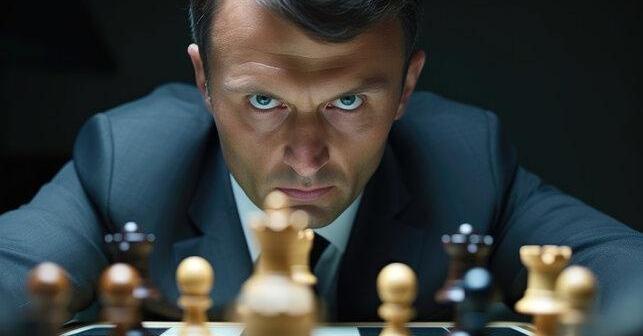Chess is well known to be closely knitted with IQ. People with fairly high IQs naturally gravitate toward chess, which helps build their IQ in a positive feedback loop. But is IQ the only form of intelligence influenced by chess? Chess players can seem somewhat aloof, robotic, and anti-social, but how emotionally aware are they, and how did chess impact this awareness? Let’s find out.
The Connection Between Chess and Emotional Intelligence
Chess contributes largely to analytical and sharp thinking, but amateur players often need to acknowledge the emotional cues. Due to emotional factors, chess players do their best to mask their emotional consciousness and not leave clues for their emissary, hence the aloof outlook.
As humans, everything we do is typically influenced by emotions; chess is not excluded. We read emotional responses from many scenarios. For instance, from reading our opponents, we can tell when they are confident in the position of the game, when they are confused about what to do, and when the position shakes them. These cues can also be applied in real life, especially during negotiations, when we are intimidated by individuals, when we are placed under pressure, etc.
When you master the art of acknowledging emotional cues in chess, you use this to your advantage, especially in games of high significance. Players consider this psychology when making seemingly intimidating chessboard moves. Sometimes, these moves are not intimidating and could even be blunders, but because of how it might appear, how it was played, or a lack of adequate information, the moves can come off as “strong”.
These pseudo-strong moves can then lead to weak and timid responses from the opponent. The initial player has just flexed their emotional intelligence against their opponent.
A rather cocky example of emotional intelligence in chess is taunting a player who refused to resign. In non-professional chess, we have seen players promote all their pawns to queens to provoke a player who refuses to resign. This display is an emotional warfare between a stubborn loser and a patient but daring winner.
All that concerns the theory and principles of chess you can learn on the chess resource.
Research and Case Studies
If you saw the final moments of the 2023 World Chess Championship, you’d notice that chess is a highly emotional game. Realizing his inevitable loss in the final tiebreaker game, Ian Nepomniachtchi shakily grabbed the off-the-board pieces, looking away from the board with teary eyes.
This scenario is one of the most in-depth shows of emotion ever recorded from chess players. At that moment, even Ding Liren would’ve acknowledged his win before Nepomniachtchi’s resignation.
I also take you through the moments when Magnus Carlsen overturned the fortunes of a game to win. His demeanor strikes the opponent unbothered even when the engine evaluation is significantly against him. This emotional tactic raises a question mark in his opponent’s mind, prompting them to worry if there’s a threat from Magnus that they don’t see.
We have seen this play out in Magnus’s world championship match, where Ian Nepo had the lead but BLUNDERED to lose the game. We have also seen it in a 2023 Champions Chess Tour game against Fabiano Caruana, where Magnus Carlsen remarkably won against a world number 2 despite going a QUEEN down.
Two Armenian researchers, Anzhela Sargsyan and Armine Khachatryan, published a paper on “Research of Emotional Intelligence on Chess Teachers and Pupils”. The results showed that chess teachers demonstrate a high level of emotional awareness while the pupils recognize the highs and lows of basic emotions.
Psychological Perspective
The most prominent show of psychology in chess is when we observe a game between a clear favorite and an underdog. Typically, the underdog comes into the game, maybe determined or not, but a keynote is the psychological storm that plays out when the underdog wins.
The favorite understands the disappointment at stake and tries to be more intimidating with his moves. Tensions are raised because the underdog realizes that one slight mistake could ruin their hard-fought victory.
They also desire internal and external validation from defeating a strong player. This desire that fuels motivation also appeals to emotions, emphasizing emotional intelligence in chess players.
Conclusion
Understanding the relationship between chess and emotional intelligence will give conscious players a slight edge, but as you have observed, this edge is mainly efficient in over-the-board chess. Some principles apply to online chess as well, but only slightly.







